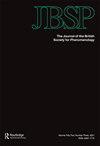海德格尔在《存在与时间》中关于语言的评论的衍生主义解读:一种批判
IF 1
2区 哲学
0 PHILOSOPHY
JOURNAL OF THE BRITISH SOCIETY FOR PHENOMENOLOGY
Pub Date : 2020-10-21
DOI:10.1080/00071773.2020.1833128
引用次数: 0
摘要
海德格尔在《存在与时间》中关于语言的论述并不构成一个全面的语言理论。休伯特•德雷福斯(Hubert Dreyfus)、威廉•布拉特纳(William Blattner)和马克•沃瑟尔(Mark Wrathall)都对这些言论提出了衍生主义解读。衍生主义是一种理论,认为语言是从语言之前的世界经验中衍生出来的——但衍生主义并不完全正确。它没有充分地说明存在于世界的揭露与海德格尔所说的话语之间的关系。我认为,虽然语言的本体论基础是在揭示性的构成中,但这并不意味着语言是由一种存在性前语言的存在于世界的方式所预示的。最后,我将Wrathall关于揭露的主张发展成一种对话语与语言之间关系的更令人满意的描述,我将其与海德格尔在《存在与时间》中关于话语与语言之间关系的主张进行对比。本文章由计算机程序翻译,如有差异,请以英文原文为准。
The Derivativist Reading of Heidegger’s Remarks about Language in Being and Time: A Critique
ABSTRACT Heidegger’s remarks about language in Being and Time do not constitute a comprehensive theory of language. Hubert Dreyfus, William Blattner and Mark Wrathall each propose a derivativist reading of these remarks. Derivativism is the theory that language is derivative of a pre-linguistically articulated experience of the world – but derivativism is not quite right. It does not account adequately for the relationship between the disclosedness of being-in-the-world and what Heidegger calls discourse [Rede]. I claim that although language has its ontological foundation in the constitution of disclosedness, this does not mean that language is prefigured by a way of being-in-the-world that is existentially prelinguistic. Finally, I develop Wrathall’s claims about disclosedness into a more palatable account of the relationship between discourse and language, which I test against Heidegger’s claims about the relationship between discourse and language in Being and Time.
求助全文
通过发布文献求助,成功后即可免费获取论文全文。
去求助

 求助内容:
求助内容: 应助结果提醒方式:
应助结果提醒方式:


